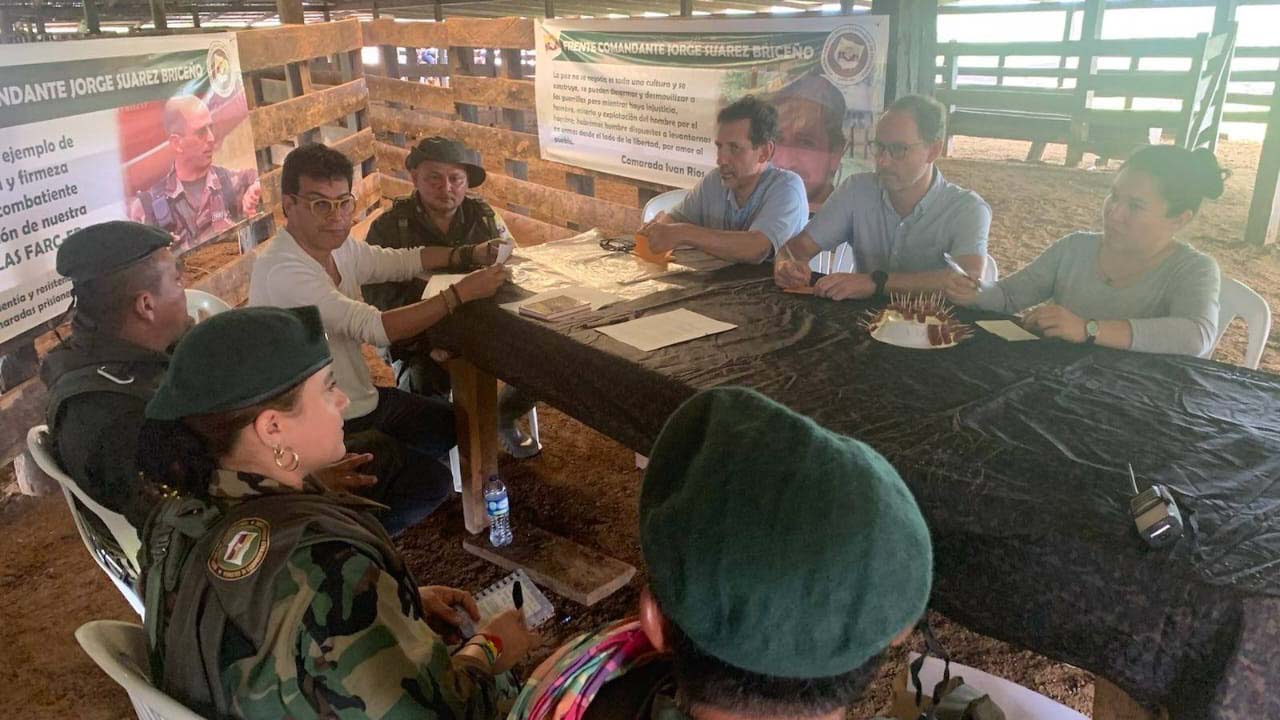On Monday March 13, Colombian President Gustavo Petro announced that the government and a dissident group of the demobilized Revolutionary Armed Forces of Colombia – People’s Army (FARC-EP) guerilla group, the Estado Mayor Central (EMC), would soon begin peace talks.
The head of state announced the news on his Twitter account. “A second peace process is beginning. A negotiating table will be established between the government and the Estado Mayor Central,” wrote Petro. In another tweet, he celebrated that “with the beginning of talks with the Estado Mayor Central, practically half of the people currently in arms enter into negotiations with the government.”
The announcement came hours after the Attorney General’s Office suspended arrest warrants against 19 members of the rebel group, who rejected the Havana Peace agreement, signed between the government of President Juan Manuel Santos and the FARC in November 2016. In February, President Petro requested the Attorney General of the Nation, Francisco Barbosa Delgado, to suspend arrest warrants against them to facilitate the beginning of peace negotiations.
“The Attorney General of the Nation, after weighing the arguments presented by President Petro, and in accordance with his legal and constitutional duties, has decided to suspend existing and future arrest warrants against 19 people…who did not sign the Havana Peace Agreement and who signed the Agreement and did not comply with it,” said the office in a statement.
During his election campaign, Petro had pledged to end violence, dismantle paramilitary groups and consolidate peace in the country. After assuming the presidency in August 2022, he reiterated his commitment to end six decades of internal armed conflict and achieve “total peace.” At the time, he vowed to resume peace talks with the National Liberation Army (ELN) guerilla group, fully implement the 2016 peace agreement, and negotiate peace agreements with all irregular armed and drug-trafficking groups.
The peace talks with the ELN are already underway, and last Friday, the government and the ELN concluded the second round of talks and agreed on a definitive agenda that will guide the following stages of the negotiation process between them. The delegation of both parties also reached an initial agreement for a bilateral ceasefire.
In this regard, Monday’s announcement means that the EMC will be the second group with which the Colombian government will seek peace and it is expected that this process, unlike the one carried out with the ELN, will take place in Colombia.
According to Colombian human rights organization, the Institute of Development and Peace Studies (INDEPAZ), so far, at least 23 irregular armed groups operating in the country have expressed their will to lay down arms, engage in dialogue and accept conditions in exchange for peace and definitive non-repetition of violence.
Since January, the Petro government has been maintained a six-month bilateral truce with the EMC, along with the Segunda Marquetalia, another FARC dissident group, and drug cartels Clan del Golfo and Los Pachencas. However, on Monday, Petro reported that Clan del Golfo had broken its deal and warned that there would be no possibility of negotiations with the group if they continued attacks.





